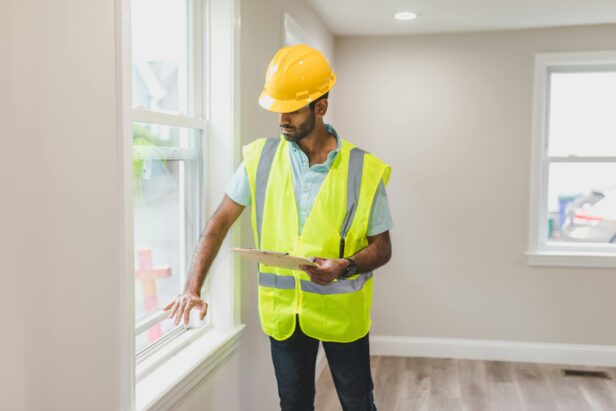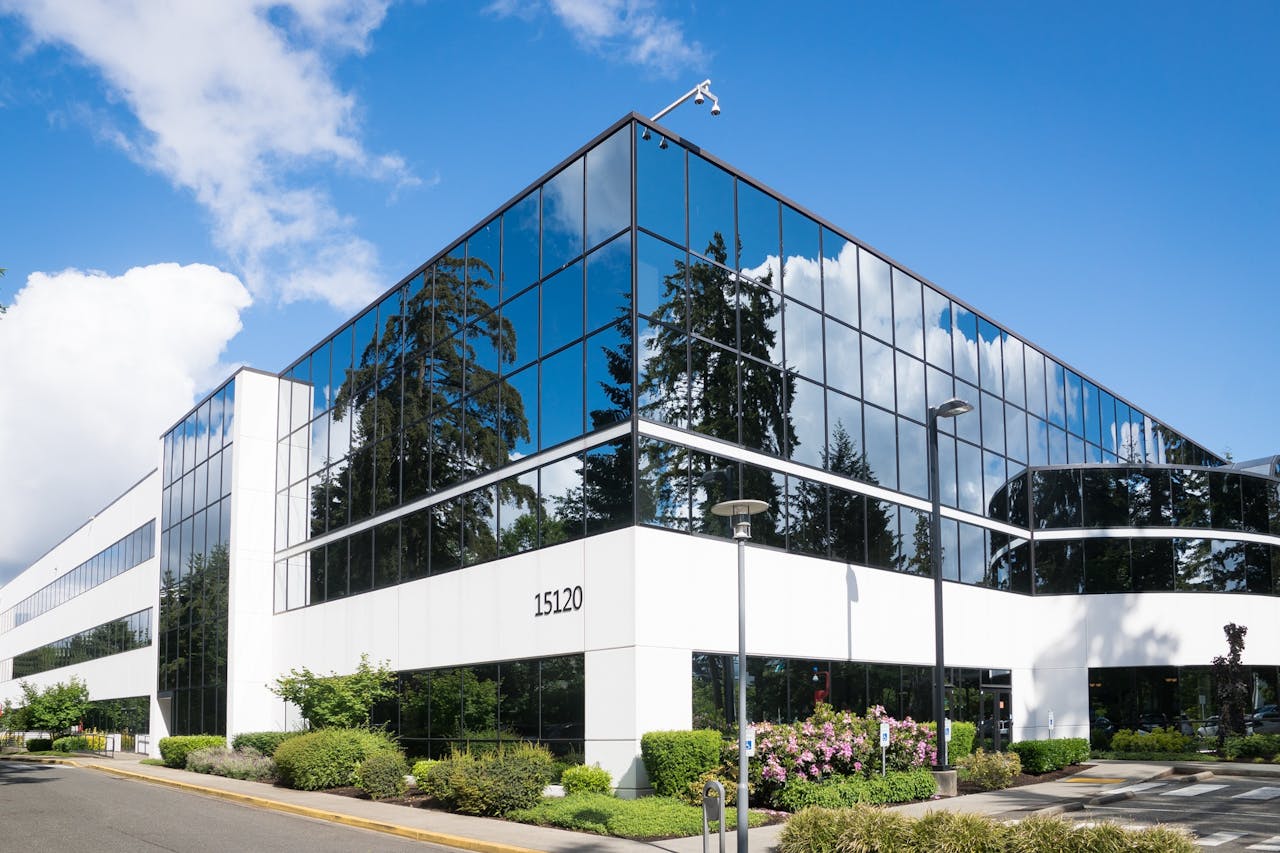Tenant improvement contractors Dallas help businesses transform leased commercial spaces to meet their operational requirements. These modifications, known as tenant improvements (TIs or build-outs), range from simple cosmetic updates like painting and flooring to comprehensive renovations involving new walls, plumbing, electrical systems, and HVAC installations.
In the Dallas-Fort Worth metroplex, tenant improvements typically form part of commercial leases through tenant improvement allowances. Landlords provide these per-square-foot allowances to attract quality tenants and reduce vacancy periods, while tenants use TIs to create functional workspaces that enhance productivity and support business objectives.
What Do Tenant Improvement Contractors Actually Do?
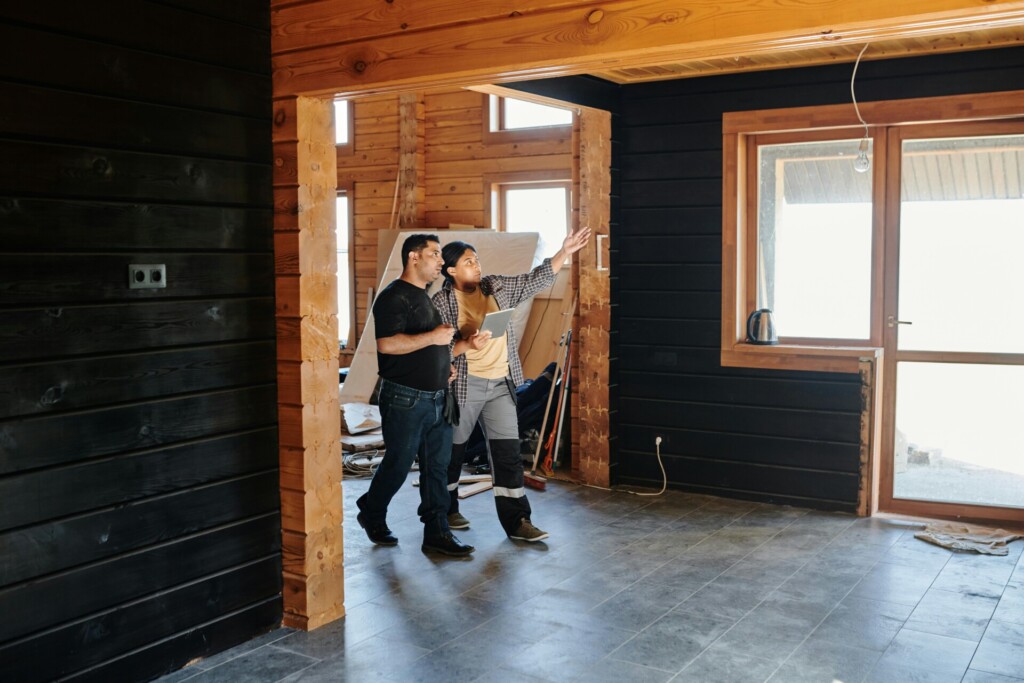
We oversee the complete interior renovation cycle from initial planning through final closeout. Our team coordinates every aspect of construction feasibility, working closely with architects and designers to develop functional layouts that meet both business requirements and property guidelines. This comprehensive approach ensures that each build-out aligns with the tenant’s operational needs while maintaining compliance with all applicable building standards.
The coordination we provide extends beyond basic project oversight. We manage subcontractors across multiple trades, ensuring that electrical, plumbing, and HVAC installations occur in the proper sequence without delays or conflicts. Our project management approach emphasizes clear communication between all parties, keeping timelines on track while controlling costs throughout the construction phase.
Code Compliance And Regulatory Management
We navigate the complex landscape of building codes and municipal regulations that govern commercial properties. Our team understands the specific requirements for life-safety systems, accessibility standards, and structural modifications within leased spaces. This expertise prevents costly delays and ensures that all improvements meet current regulatory standards before construction begins.
Permit acquisition represents a critical component of our services. We prepare and submit all necessary documentation to local authorities, coordinating with building departments to secure approvals efficiently. Our familiarity with Dallas-Fort Worth permitting processes helps accelerate this phase, reducing the risk of project delays that could impact tenant move-in dates.
Systems Integration And Technical Expertise
Complex building systems require specialized knowledge that we bring to every tenant improvement project. Our team handles HVAC modifications, ensuring proper ventilation and climate control for the tenant’s specific space requirements. These systems must integrate seamlessly with existing building infrastructure while providing optimal performance for the new layout.
Electrical and plumbing work demands precision and code compliance. We coordinate these installations to support everything from basic lighting and power distribution to specialized equipment needs. Our approach considers both current requirements and potential future modifications, creating infrastructure that can adapt as business needs evolve.
Landlord-Tenant Coordination
We serve as the primary liaison between property owners and tenants throughout the construction process. This role involves aligning improvement plans with property guidelines while ensuring that tenant improvement allowances are maximized effectively. Our team works within the parameters established by lease agreements, helping both parties understand how design choices impact budget allocations.
Schedule management becomes particularly important when coordinating with building operations. We plan construction activities to minimize disruption to existing tenants and building systems. This includes coordinating access, managing noise levels, and ensuring that common areas remain functional throughout the build-out process.
At EB3 Construction, we deliver these comprehensive services through multiple approaches including general construction, design-build, and construction management. This flexibility allows us to adapt our service delivery to match the specific needs of each project while maintaining our commitment to quality and efficiency throughout the tenant improvement process.
How Does The Dallas Tenant Improvement Process Work?
We structure tenant improvement projects around three core phases that build systematically from initial consultation to construction completion. Each phase requires careful coordination and serves specific purposes within the overall project timeline.
Initial Consultation And Planning
During the initial consultation, we assess your business requirements and spatial needs through detailed discussions about functionality, workflow, and long-term goals. We examine the existing space conditions, including structural elements, mechanical systems, and any constraints that might impact your project scope.
Our team conducts a thorough lease review to understand landlord restrictions, tenant improvement allowance terms, and any building-specific requirements. This feasibility analysis helps identify potential challenges early and establishes realistic expectations for budget and timeline.
Design And Budgeting
We develop comprehensive design plans that translate your vision into detailed construction documents, often including 3D renderings that help visualize the finished space. These visual tools allow you to evaluate layouts, finishes, and functionality before construction begins.
Our budgeting process creates line-item estimates covering materials, labor, permits, and contingencies to provide complete cost transparency. We work closely with you to adjust the project scope as needed to align with your tenant improvement allowance while maintaining your essential requirements.
Permitting And Approvals
We handle all permit submissions and coordinate with local authorities throughout the approval process. Our familiarity with Dallas building departments and code requirements helps streamline these interactions and reduces potential delays.
The approval timeline varies based on project complexity, with simple interior modifications typically requiring less time than projects involving structural changes or major mechanical upgrades. We factor this permitting phase into the overall project timeline to ensure realistic scheduling expectations and coordinate construction start dates with permit approval.
What Types Of Tenant Improvements And Services Are Common In Dallas?
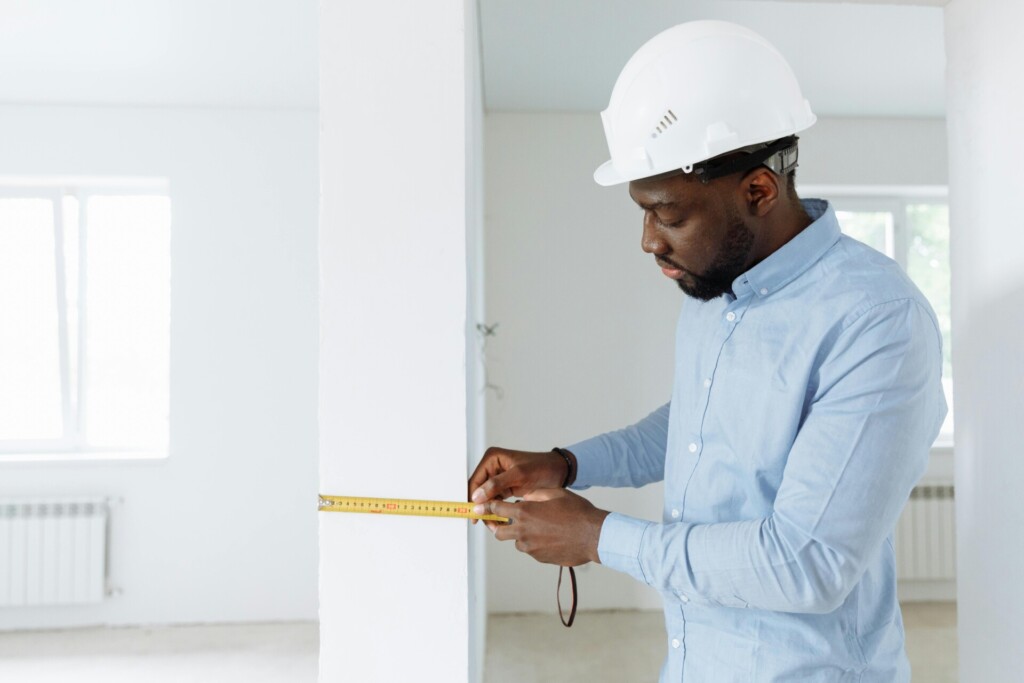
Standard tenant improvement scope covers the core building components that shape how a space functions. We handle painting and wall coverings, flooring installations, lighting and ceiling upgrades, windows and doors with hardware, plus cabinets and countertops. HVAC, plumbing, and electrical systems form the technical backbone of most projects. Partitions and room additions create the spatial configurations tenants need.
Most tenant improvement allowances exclude furniture and décor items. These removable elements fall outside typical construction budgets and remain the tenant’s responsibility. Understanding this distinction helps property owners and tenants plan their investment appropriately.
Office Renovations Focus On Productivity And Collaboration
Office renovations center on creating efficient workspace layouts that support modern business operations. We design meeting rooms with proper acoustics and technology infrastructure. Lighting systems receive particular attention, balancing energy efficiency with employee comfort and productivity.
Open floor plans require careful coordination of mechanical systems and power distribution. We install partition systems that offer flexibility for future reconfigurations. Conference rooms and private offices need specialized ventilation and sound control.
Retail Build-Outs Emphasize Customer Experience
Retail build-outs focus heavily on storefront design and customer flow optimization. We install eye-catching display fixtures and create fitting rooms that enhance the shopping experience. Product lighting systems highlight merchandise effectively while managing energy costs.
Point-of-sale areas require specific electrical configurations and security considerations. Storage areas and back-of-house spaces need efficient layouts that support inventory management. Retail spaces often require specialized flooring that handles high traffic while maintaining aesthetic appeal.
Industrial Modifications Address Operational Requirements
Industrial modifications typically involve heavy-duty flooring capable of supporting equipment loads and resisting chemical exposure. We design specialized storage solutions for raw materials and finished goods. Loading areas require proper dock configuration and safety systems.
Ventilation systems in industrial spaces must handle specific air quality requirements and process exhaust. Life-safety systems include fire suppression, emergency lighting, and clear egress paths. These projects often require coordination with specialized equipment installations.
Comprehensive Construction Services
We manage tenant build-outs, remodels, renovations, and ongoing facility maintenance through multiple delivery methods. General construction provides traditional project execution with clear contractor accountability. Design-build streamlines the timeline by integrating design and construction phases.
Construction management offers enhanced owner control over subcontractor selection and project execution. Each delivery method suits different project types and client preferences. We help property owners select the approach that best fits their timeline, budget, and risk tolerance.
How Are Tenant Improvements Financed And Negotiated?
Tenant improvement allowances represent the most common financing mechanism for build-outs. Landlords typically express these allowances as per-square-foot amounts, creating a clear baseline for both parties to work from during negotiations.
Most TI allowances cover hard construction costs like electrical work, plumbing, flooring, and HVAC modifications. However, they often exclude furniture, equipment, and other non-structural items that tenants can remove at lease end. Understanding these boundaries helps set realistic expectations during the planning phase.
Negotiating Higher Allowances
Tenants can request increased allowances during lease negotiations, particularly in competitive markets. Strong financial documentation supports these requests by demonstrating creditworthiness and long-term viability. We’ve seen successful negotiations where tenants present detailed financial statements, business plans, and cash flow projections to justify higher allowances.
Longer lease terms often provide leverage for increased allowances. Landlords view extended commitments as reduced turnover risk and may offer higher per-square-foot amounts for five- to ten-year leases. The calculation becomes straightforward: longer tenant retention offsets higher upfront allowance costs.
Alternative Financing Options
When standard allowances fall short of project needs, several alternatives exist. Amortized improvements integrate TI costs directly into monthly rent payments, spreading expenses over the lease term with interest. This approach requires careful coordination with your landlord to structure payments appropriately.
Leasehold improvement loans offer another path when allowances prove insufficient. These loans function similarly to traditional commercial financing but focus specifically on tenant improvements. Banks and alternative lenders evaluate both the tenant’s creditworthiness and the improvement’s potential to enhance business operations.
Coordinating With All Parties
Successful TI financing requires alignment between tenant, landlord, and contractor from project start. We coordinate budget discussions early to ensure allowance amounts match actual construction costs. This prevents mid-project funding gaps that can delay completion or force scope reductions.
Clear rent structure agreements protect all parties when amortization is involved. Document payment schedules, interest rates, and what happens if the tenant terminates the lease early. Financial documentation requirements should be established upfront to avoid delays during the approval process.
Conclusion And Next Steps
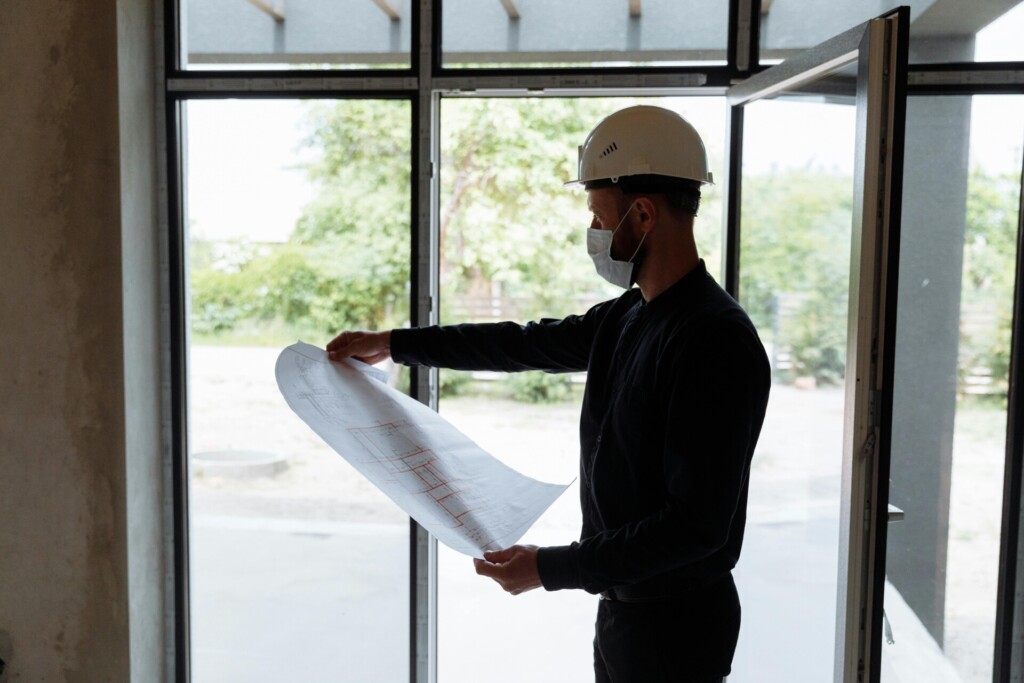
Define your scope and priorities early. Start by reviewing your lease agreement for specific TI allowance terms and any landlord restrictions that might affect your project timeline or design choices. Early coordination with your landlord prevents delays and ensures your improvements align with property guidelines and building standards.
Create a shortlist of qualified tenant improvement contractors in Dallas. Verify each contractor holds current licensing through the local licensing board and maintains proper insurance coverage including general liability and workers’ compensation. Review their portfolio of similar projects and speak directly with past clients about their experience with project management, timeline adherence, and quality of work. Get multiple bids from at least three contractors and compare complete scope coverage rather than just bottom-line pricing.
Plan adequate time for permitting and approvals based on your project complexity. Consider scheduling construction work during off-hours to minimize disruption to your business operations. With a clear plan and the right construction partner like EB3 Construction, we can align design vision with budget constraints and delivery schedules for a successful build-out that meets your operational needs.
Ready to start your Dallas tenant improvement project? Contact EB3 Construction to discuss your commercial space renovation requirements.

